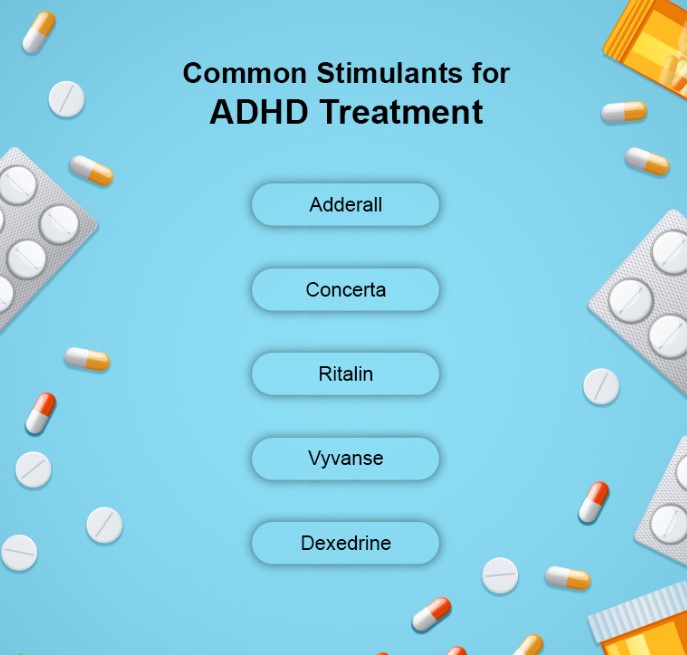BOURSESSENEGAL – When it comes to managing Attention Deficit Hyperactivity Disorder (ADHD), two of the most commonly prescribed medications are Ritalin and Adderall. Both are stimulant medications that can help improve focus, concentration, and impulse control. However, they differ in several important ways. In this article, we’ll dive deep into Ritalin vs Adderall, exploring their ingredients, effectiveness, side effects, and much more. By the end, you’ll have a clearer understanding of which medication may be more suitable for you or your loved ones.
What Are Ritalin and Adderall?
Ritalin: The Basics
Ritalin, whose generic name is methylphenidate, is a central nervous system stimulant. It works by affecting certain chemicals in the brain that contribute to hyperactivity and impulse control. Doctors typically prescribe Ritalin to children and adults diagnosed with ADHD. The medication comes in various forms, including immediate-release and extended-release formulations.
Adderall: The Basics
Adderall, on the other hand, is a combination of amphetamine and dextroamphetamine. Like Ritalin, it also acts as a central nervous system stimulant. Adderall is commonly prescribed for ADHD as well, and it is available in both immediate-release and extended-release forms. The blend of amphetamines in Adderall can provide a more sustained effect, which some patients find beneficial.
Ritalin vs Adderall: How They Work
Both medications help manage ADHD symptoms, but they do so in slightly different ways. Ritalin primarily boosts levels of dopamine and norepinephrine in the brain, while Adderall enhances the release of these neurotransmitters. As a result, patients may respond differently to each medication.
Mechanism of Action
- Ritalin: Increases dopamine and norepinephrine by blocking their reuptake in the brain.
- Adderall: Stimulates the release of dopamine and norepinephrine while also blocking their reuptake.
These differences can lead to variations in effectiveness, duration of action, and side effects for different individuals.
Effectiveness: Which Is Better?
Ritalin’s Effectiveness
Studies show that Ritalin can be highly effective for many people with ADHD. It typically starts working within 30 to 60 minutes and lasts for about three to four hours for the immediate-release version. The extended-release form can last up to eight hours, making it convenient for daily use.
Adderall’s Effectiveness
Adderall tends to have a longer duration of action. The immediate-release form lasts around four to six hours, while the extended-release version can provide relief for up to 12 hours. This longer duration can be especially helpful for individuals needing sustained focus throughout the day.
Side Effects: What to Expect
Both Ritalin and Adderall can have side effects, and understanding these can help you make an informed decision.
Common Side Effects of Ritalin
- Insomnia
- Decreased appetite
- Stomach pain
- Headaches
- Increased anxiety
Common Side Effects of Adderall
- Insomnia
- Dry mouth
- Decreased appetite
- Weight loss
- Increased heart rate
While both medications share some common side effects, individuals may experience different reactions. For example, some might find Ritalin easier on their stomach, while others might prefer the more extended relief that Adderall offers.
Dosage: Finding the Right Fit
Ritalin Dosage
Ritalin is available in various strengths, usually ranging from 5 mg to 60 mg per day. Doctors often start patients on a lower dose and adjust based on their response and tolerance.
Adderall Dosage
Adderall also comes in multiple strengths, typically ranging from 5 mg to 30 mg per dose. Similar to Ritalin, healthcare providers usually begin with a lower dose to find the right balance for each individual.
Considerations for Use
When choosing between Ritalin and Adderall, several factors should be taken into account:
Personal Health History
- Cardiovascular Issues: Both medications can increase heart rate and blood pressure, so it’s essential to discuss any heart-related conditions with your doctor.
- Mental Health: If you have a history of anxiety or depression, these medications can exacerbate symptoms.
Lifestyle Factors
- Daily Routine: Consider when you need the most focus. If you require help in the evening or during activities that require sustained attention, Adderall may be more suitable.
- Diet and Exercise: Both medications can reduce appetite, so maintaining a balanced diet is crucial for overall health.
Final Thoughts: Ritalin vs Adderall
Ultimately, the choice between Ritalin and Adderall depends on individual needs, preferences, and responses to the medications. Both have proven effective for managing ADHD symptoms, but their different mechanisms of action and side effect profiles mean that one may work better for you than the other.
Consult a Healthcare Professional
Before making any changes to your medication regimen, it’s vital to consult a healthcare professional. They can help you navigate the complexities of Ritalin vs Adderall and guide you to the option that best suits your unique situation.
In conclusion, whether you lean towards Ritalin or Adderall, understanding the differences can empower you to make an informed decision about your ADHD treatment. Remember that managing your condition is a journey, and finding the right medication is just one step along the way.
REFERENCE : https://en.wikipedia.org/



